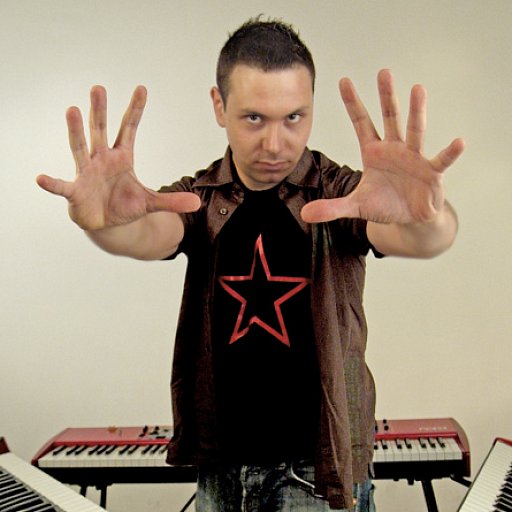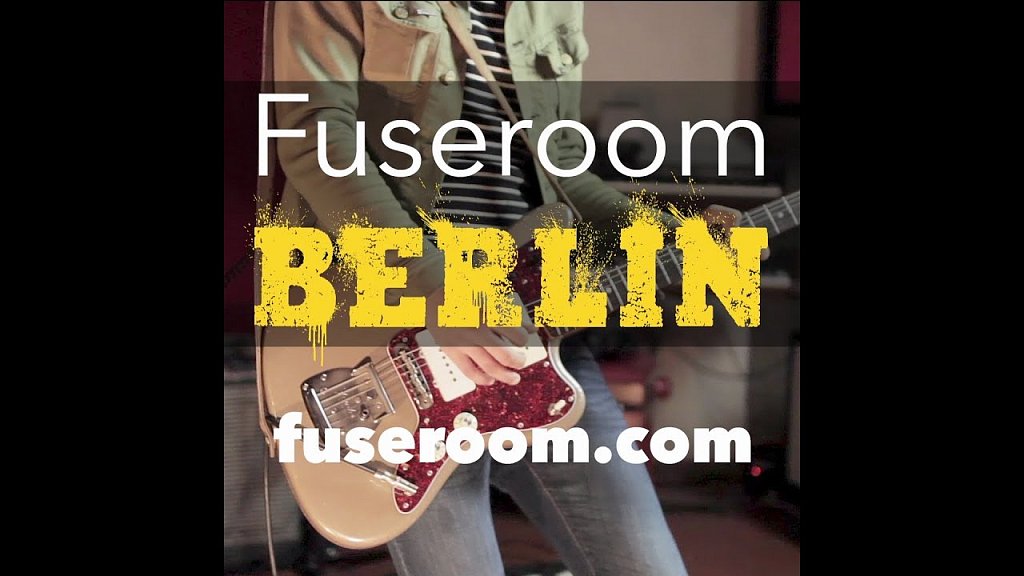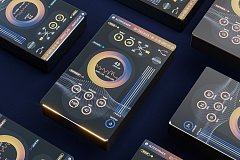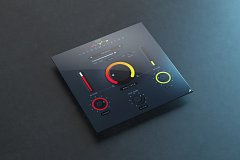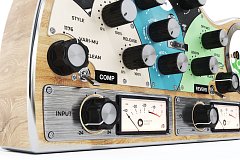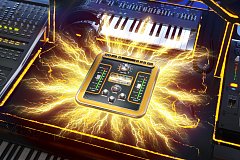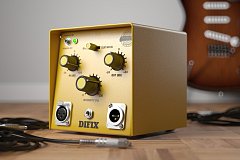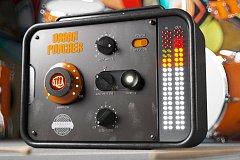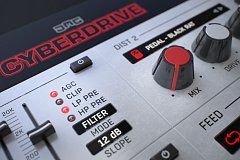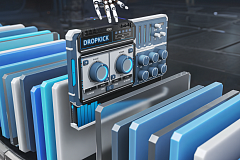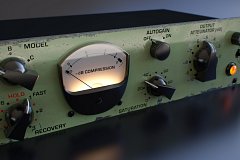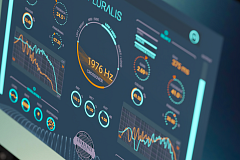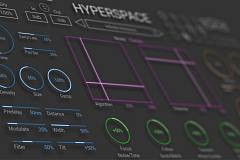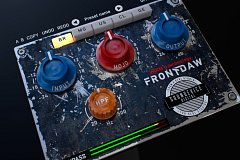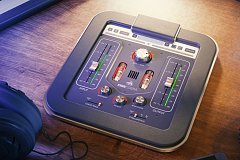Alberto Rizzo Schettino
Bio
Best Pianist/Keyboardist 2005 at Hollywood's Musicians Institute, Alberto joined productions in the progressive rock scene (Derek Sherinian, Planet X, TJ Helmerich) right after graduation, worked as assistant in sessions at the iconic Cello Studios, prepped music for some of the best musicians in the LA jazz scene and even landed a gig with pop star Joss Stone.
After honours on jazz piano performance with Berklee College of Music. Alberto opened Fuseroom Recording Studio in 2007 as a place to teach, produce and work on his music.
In the years Alberto has worked for artists and bands like Roger Burn (Chaka Khan, The Mask, Saturday Night Live), Shapes, David White (Mad Max: Fury Road), Anna Oxa, Marco Masini, Derek Sherinian, Planet X, Garsed/Helmerich, Morgan Heritage and more, while also working with leading brands in the gaming industry such as Riot Games (League of Legends), Bohemia Interactive (ArmA), Blizzard Entertainment (Overwatch) and aviation technology giants such as Qatar Airways and Etihad Airways.
Alberto also works as a product specialist for companies like Dangerous Music, Universal Audio, Wholegrain Software, Lauten Audio and since 2014 is a chief beta tester at Focal while being one of the brilliant minds behind the success of pureMix Audio Tutorials, since 2013.
Quotes
Autoformer
Autoformer has no middle-ground, for me: it either sits at the beginning of the chain, to "prepare" the material for processing.. or at the very end, when the chain is just perfect as is but I still want to get one step further into getting the right attitude from that one track.
Transmutator
The music I write sometimes calls for something incredibly glitchy, ever-evolving, droney and generally alive. I've set up a couple of FX chains that feed into each other in a cool way and Transmutator is the basic tool to help me achieve this intricate effect. It's been in my scoring template ever since.
Quick AG
This is a well-thought-out thing that just takes single, monocentric acoustic guitars and turns them into what sounds like a record.. and you can get very subtle and still feel like "it's just a recorded guitar" while instead there's plenty of action. Believable compression models too, especially the FET, oomph. I wish I had this some time ago!
FireCharger
The Magnetize knob alone makes the plug-in worth. It's got a blooming/thickening effect that just fills and extends the space of a mix in the headphones or gets lead vocals to be tape-thick the way we love.
DIFIX
Awesome, this is going to help some students of mine with their typical "no DI, just in the audio card" setups. I've used it to beef up DI stuff for bass in-the-box in a couple of latest mixes. Great job.
Urban Puncher
What a sound! And just by twisting those few knobs.. in a matter of seconds. Urban Puncher finds the attitude inside a track and brings it up front, without being a one-trick pony.
Cyberdrive
I welcomed Cyberdrive to create crazy, glitched, or just beautifully wrong stuff. They say I write "music for broken sound cards and an A.I. gone rogue" ... and Cyberdrive is great for making a nuclear reactor go critical. But in a good way.
Dropkick
It makes low-end transient management effortless. It's faster than other tools I have, and it helps me get kicks and low percussion that are heard and felt, even through some of my busiest, hectic cinematic arrangements.
Royal Compressor
One of the compressors that sits in my template, in different applications. It's one of my secrets used in parallel on lead vocals (Type B!) and is able to confer a euphonic density to the sound that is uncommon in the digital world.
Pluralis
Pluralis embodies all I want from a digital delay. I like to use it to open up worlds from the simplest of synth sounds... and Pluralis can draw them all with ease
Hyperspace
I go very proud about my ability to create a sense of space, a halo or a bloom, around sounds in a mix (especially vocals). Hyperspace is my "halo designer" whenever I need to work on a virtual space that enhances an instrument, without the listener even noticing it in the mix.
Front DAW
I use a lot of analogue gear in the studio and I can't live without it... but it doesn't mean I leave analog emulations out: FrontDAW sits elegantly and imparts a footprint that is not overwhelming while still bringing out something lively in the sound. These are definitely the two traits that every real (and good) analogue preamp has.
FireCobra
There's an energy to Firecobra and a "compelling push" that just radiates from the inside of a mix of material it is applied to. It's spontaneous, effortless and makes music bloom like old tape and analog mojo used to.

